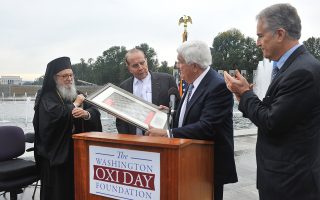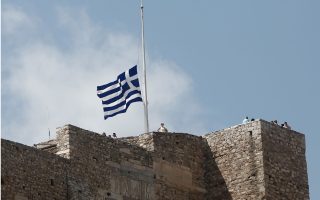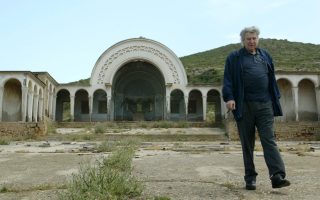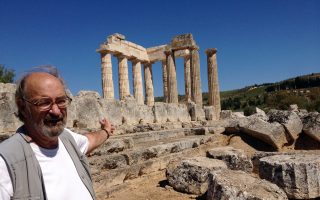Greece mourns a former president
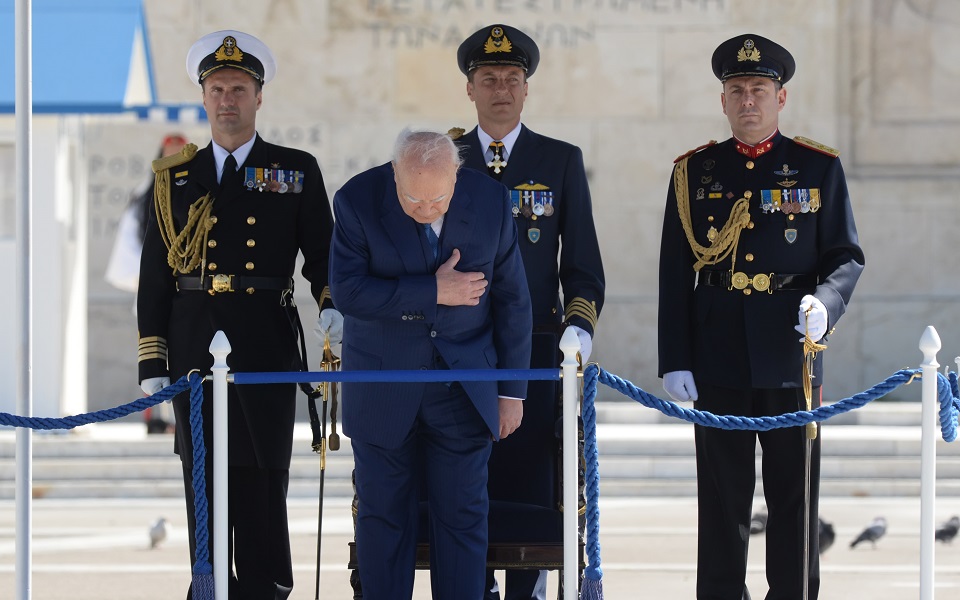
Karolos Papoulias was the embodiment of moderation, composure and tact, but also of the essential. Over the lengthy course of his political career, he neither provoked nor succumbed to populism.
A close friend of former socialist prime minister Andreas Papandreou, he was among a handful of politicians – even before he was elected president of Greece – who enjoyed the respect of his political rivals. He kept the lines of communication open with conservative New Democracy, as well as with the Left.
Rivalries were politics – no more, no less. He knew that parties needed to come together to talk about the big issues, in depth and away from the light of publicity and he exercised this principle too, listening to different opinions. It was these qualities that got him nominated for the highest office of the land by conservative Prime Minister Kostas Karamanlis.
The former president will not only be remembered for this decade-long service to that office, but also for his significant contribution as minister. And not just for being Papandreou’s choice, but also that of Xenophon Zolotas (and indirectly of conservative Konstantinos Mitsotakis and communist Harilaos Florakis) in the all-party coalition government of 1990.
Karolos Papoulias had a sense of humor and was modest and mild-mannered. He knew how to listen and combined traditional simplicity with a sharp intellect. Many greats have spoken of his contribution. Karamanlis spoke of cherishing their long conversations.
It is this ability – to draw on long experience and acceptance across party lines, to offer sage advice to whoever is prime minister – that remains, perhaps, the most important role of the institutionally weakened office of president. The role not only allows it, but demands it.
Every prime minister becomes accustomed to praise and support from their environment. It is useful, however, for them and, more importantly, for the country, to hear different thoughts and even criticism from people they respect and that occupy an office they cannot ignore, so that they can make changes and improvement on the tactical and even strategic level. In that context and in the case of Papoulias, his experience in foreign affairs was extremely useful.
He was also the kind of politician who did not seek tension and conflict, but consensus. The disturbance during the Ochi Day parade in Thessaloniki in 2011 was deeply hurtful to him, as it was to the majority of Greeks. He had stood up to the Nazis and the dictators, but also to populism during the restoration of democracy after the 1967-74 junta.
Papoulias was a tactful and reliable interlocutor who never exposed anyone who trusted him. For example, he passed on messages to Papandreou without putting the people sending them on the spot.
In Greek-Turkish relations – our country’s biggest existential challenge – historians will no doubt distinguish his role in the Papoulias-Yilmaz memorandum. The degree to which it was upheld or flouted is for a different discussion, but there is no doubt that it marked one of the – regrettably few – instances where real progress was made between Athens and Ankara.
Karolos Papoulias was a politician who loved his country – and served it well.
